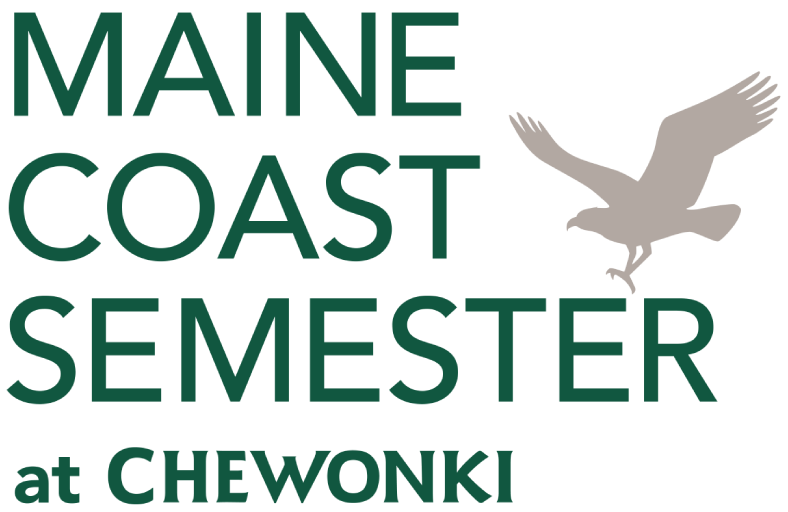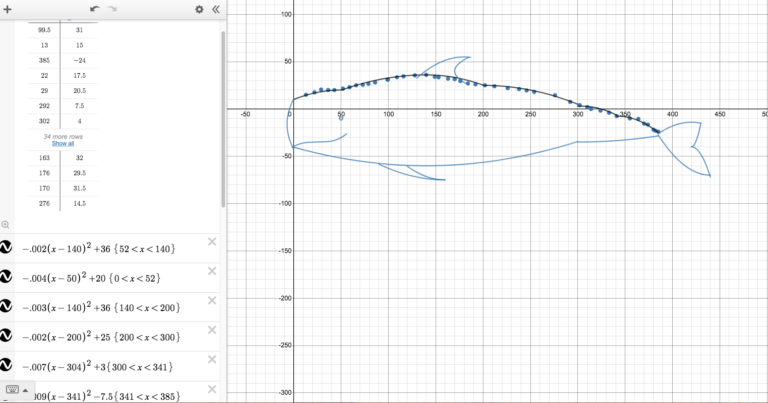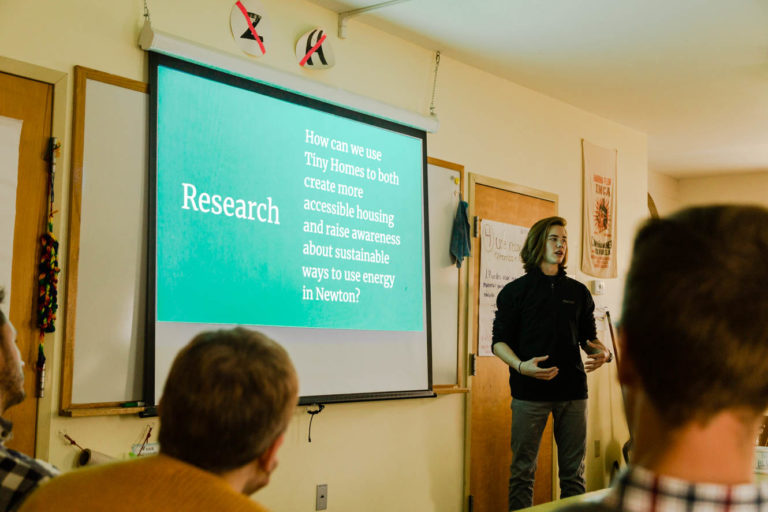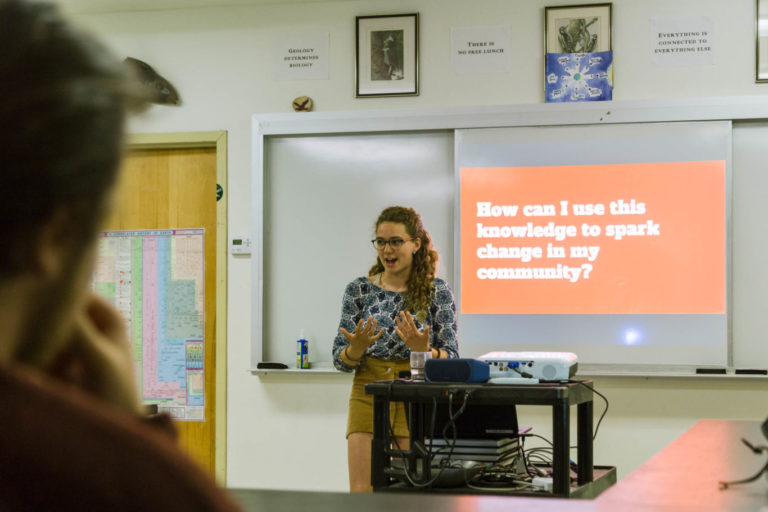Mathematics at Maine Coast Semester
Our experience indicates that small, intimate classes and meaningful collaboration naturally lead students to discuss, present, and debate mathematics. Consistent with our teaching philosophy, students are expected to engage in serious intellectual challenge, become adept at using a variety of mathematical techniques, think critically, learn how to approach math problems individually and collaboratively, and to ask questions. In addition, we utilize real-world math applications, especially in relation to the natural world on Chewonki Neck. This approach results in strengthened problem-solving skills, a better fundamental understanding of mathematics, and important connections to our mission.
Mathematics courses are offered in Algebra II, Precalculus, AP Calculus AB, and AP Calculus BC (fall only). Offerings each semester depend on enrollment numbers. Typical classes include a mix of discussion, written work, board work, presentations, projects, and lectures. Our classes provide opportunities to appreciate, discuss, practice, learn, and apply math every day.
Classes are designed to prepare students to re-enter their sending school math program when they leave Maine Coast Semester. In our non-AP courses, we teach concepts that lend themselves to project-based work. It is our belief that this approach leads to improved problem-solving skills, confidence, and enthusiasm for mathematics. If a student is concerned about missing topics that are being covered at home, we can work with them on creating an independent study plan for summer or winter break.
Students must have an understanding of the prerequisite topics to take any of our math courses. In rare cases, we find that a student is not prepared to be in the class they have registered for. A student in this situation could either change to a lower level, or stay in the class with the support of a tutor from home. These decisions are made on a case by case basis with support from our faculty. Teachers have the capacity to provide help to all students through office hours and group help sessions, but not to provide regular individual tutoring.
*All classes require the use of a TI-83/84/89/Nspire calculator.
Algebra II (H)
Elective, Prerequisite: Algebra I
Algebra II is designed to strengthen and reinforce students’ algebraic skills through a rigorous analysis of functions. Topics emphasized in both semesters include simplifying expressions, solving equations, and modeling functions. Students will use their graphing calculator and Desmos extensively throughout the course. Specific content covered each semester will shift depending on the curricular needs of the students enrolled.
Typical Fall Semester topics: Introduction to functions; Simplifying expressions; Linear equations and inequalities; Systems of Equations; Factoring; Quadratic functions; Introduction to Polynomials
Typical Spring Semester topics: Function review and transformations; Polynomial Functions; Rational Functions; Exponential and Logarithmic functions; Trigonometric functions
Texts include: Algebra and Trigonometry by Paul Foerster and the Chewonki Math Textbook act as guides for this course.
Precalculus (H)
Elective, Prerequisite: Algebra II
The underlying goal of our precalculus courses is to develop a deep and enduring understanding of a wide range of mathematical topics before entering Calculus. We hope to foster intellectual curiosity and mathematical sophistication that is inherently valuable as well as preparing students for future math courses. We do this through experiential place-based learning whenever possible. The mathematical concepts are often taught in connection with our forest, intertidal, and ocean ecosystems on and around Chewonki Neck. For example, monitoring the water level changes at our tidal waterfront allows us to explore trigonometric functions. We study vectors by canoe, determining how different current speeds influence our paddling.
Every sending school has a different precalculus curriculum. It is not possible for us to match the exact content of each student’s school. We have developed precalculus courses in each semester based on our experience of the most common content groupings. Precalculus students can choose the best fit for their course of study, with the support of their math teachers at home.
Precalculus Class Options – Placement depends on teacher recommendation in the math placement forms. Additional topics may be included as time allows.
Fall Options:
- Precalculus- Functions and Trigonometry: Function Transformations; Polynomial Functions; Exponential & Logarithmic Functions; Trigonometric Functions
- Precalculus- Trigonometry: Trigonometric Functions; Analytic Trigonometry; Vectors
Spring Options:
- Precalculus- Functions and Trigonometry: Polynomial Functions; Rational Functions; Exponential & Logarithmic Functions; Trigonometric Functions
- Precalculus- Trigonometry: Trigonometric Functions; Analytic Trigonometry; Vectors; Parametrics; Polars
- Precalculus- Intro to Calculus: Vectors; Parametrics; Polars; Limits & Continuity; Derivatives (designed for students planning to enroll in BC Calculus in the fall)
Texts include: Precalculus with Limits, 2nd Edition, Ron Larson (2011) and Chewonki Math Textbook
AP® Calculus AB
Elective, Prerequisite: The fall semester course is suitable for students who have completed Precalculus. The spring semester course is appropriate for students having studied differential calculus in the fall.
This course is designed to prepare students for the AP® Calculus AB exam in the spring but may also be taken by students enrolled in non-AP® Calculus at home. The course covers a traditional AP® curriculum, although slight modifications are made each semester to best suit the students in the class. In the fall, the course begins with a study of limits and derivatives, and typically covers all of differential calculus and introduces integral calculus through antidifferentiation and the First Fundamental Theorem of Calculus. In the spring, the course begins with a review of antidifferentiation, and moves into an in-depth study of integration and its applications, with significant time set aside for AP® exam review.
Fall Semester: Limits and Continuity; Derivatives; Applications of Derivatives.
Spring Semester: Definite Integral; Differential Equations and Modeling; Applications of Definite Integrals; AP® exam review.
Texts used: Calculus for AP®: A Complete Course, James Stewart and Stephen Kokoska (2019); Calculus Extended with Early Transcendentals, Gary Taylor and Michael Shaw (2021)
AP® Calculus BC
Elective, Prerequisite: Fall semester students should have completed either Calculus AB or an advanced Precalculus course including topics of limits, continuity, and derivatives. This is a fast-paced and rigorous course, designed to prepare students for the AP® Calculus BC exam in the spring. The class is typically small and covers a traditional AP® curriculum, although slight modifications are made each semester to best suit the students in the class. The course is not restricted to students taking an AP® level class at home.
Fall Semester: Review of Derivatives and Applications of Derivatives; Integrals; Applications of Integrals; and Advanced Techniques of Integration.
Spring Semester: Topics vary depending on student needs, but typically include Differential equations; Sequences and series; Derivatives and integrals of parametric, polar, and vector functions; and Polynomial approximations, as well as AP® Exam Review.
Texts used: A Complete Course, James Stewart and Stephen Kokoska (2019); Calculus Extended with Early Transcendentals, Gary Taylor and Michael Shaw (2021)











